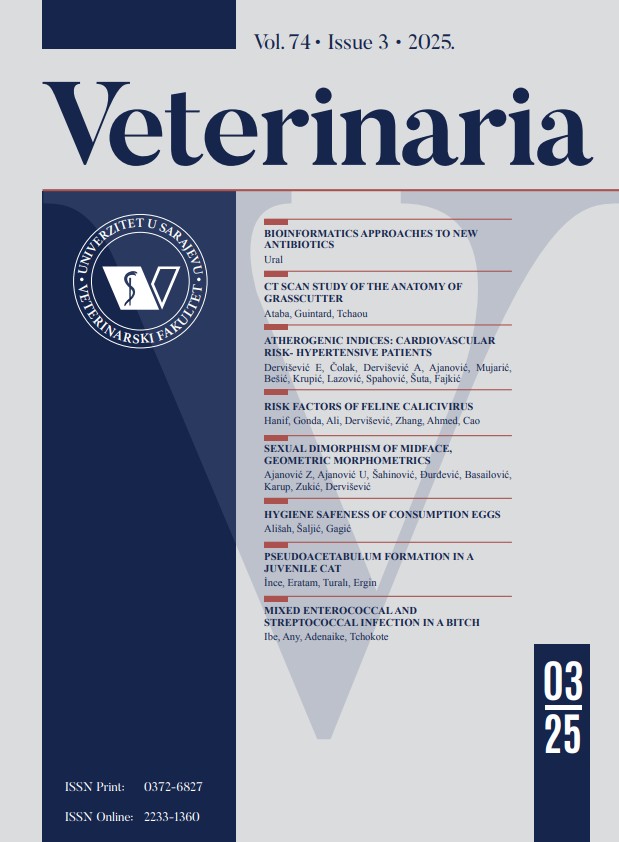Prediction of body weight from morphometric traits of White Leghorn using data mining algorithms
DOI:
https://doi.org/10.51607/22331360.2025.74.2.159Keywords:
CHAID, CART, Exhaustive CHAID, goodness of fitAbstract
The study aimed to establish a predictive model for body weight in White Leghorn using morphometric traits through different data mining algorithms. Data was collected from 100 chickens, including body weight (BW), beak length (BKL), body length (BL), keel length (KL), chest girth (CG), body girth (BG), shank length (SL), back length (BCL), shank circumference (SC) and wing length (WL). Chi-Squared Automatic Interaction Detection (CHAID), Classification and Regression Trees (CART) and Exhaustive chi-squared Automatic Interaction detection (EX-CHAID) were used for data analysis. Based on goodness of fit criteria, CART model was the best model for prediction of body weight in White Leghorn chickens with higher values of correlation coefficient (r = 0.84) and coefficient of determination (R2 = 0.71), and lower root mean square error (RMSE = 0.18), Akaike information criterion (AIC = -341.77) and Bayesian information criterion (BIC = -339.16). CART model identified CG, BL, and WL as key contributors to BW variation, suggesting that focusing on these traits can assist in BW prediction and support farmers in improving their chickens.

Downloads
Published
How to Cite
Issue
Section
License
Copyright (c) 2025 Hlamulo Luke Matsambu, Raisibe Lisbert Mahlo, Victoria Rankotsane Hlokoe, Humbulani Jedidiah Phaduli, Lebo Trudy Rashijane, Pfunzo Xina Rammbebu, Madumetja Cyril Mathapo, Thobela Louis Tyasi

This work is licensed under a Creative Commons Attribution 4.0 International License.







